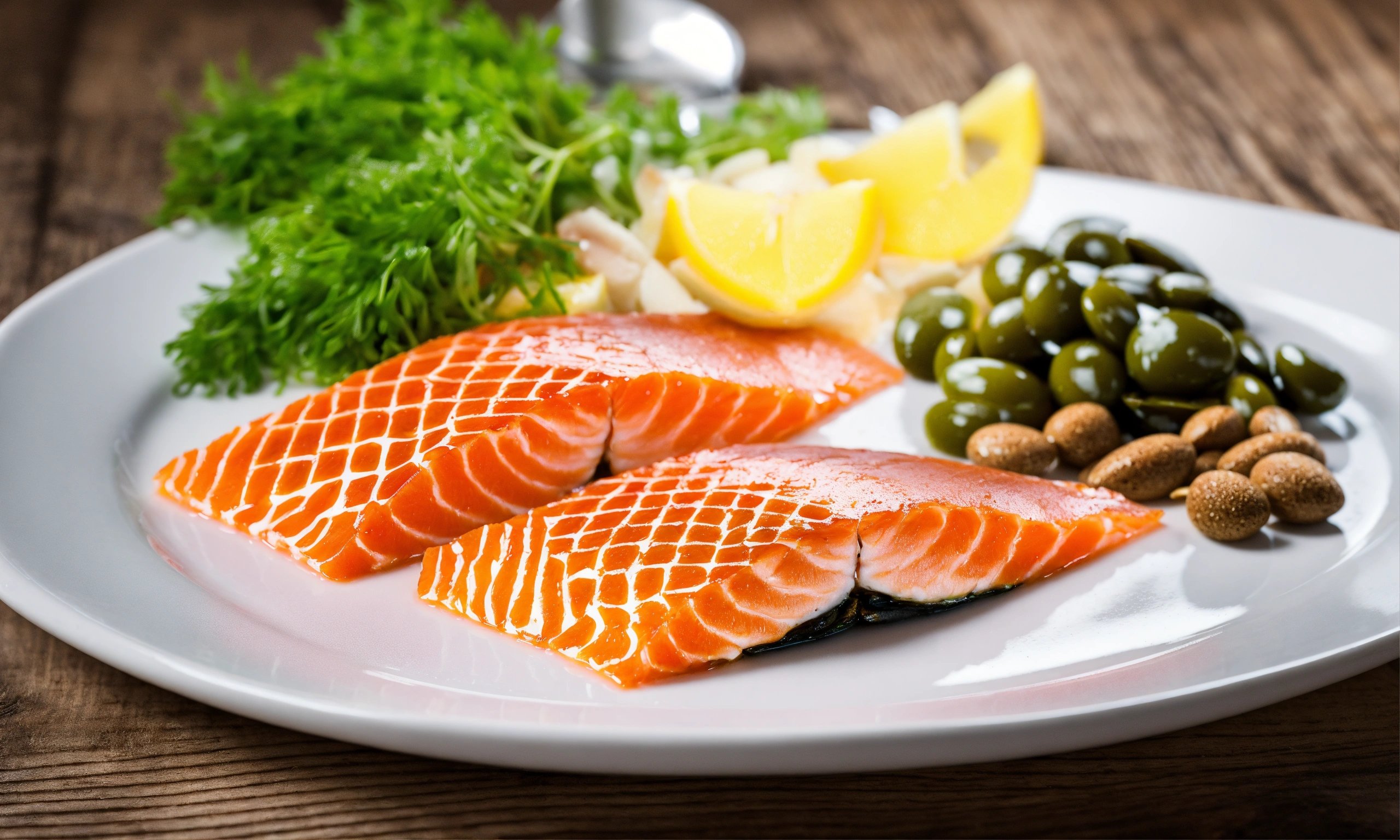The topic of dietary fats is one of the few topics in the field of nutrition that attracts as much controversy and confusion as it does. Throughout the years, fats have been vilified and blamed for a variety of negative outcomes, including weight gain and heart disease. Recent research, on the other hand, has shed new light on these essential nutrients, revealing the critical role that they play in both athletic performance and overall health. Within the scope of this all-encompassing guide, we will delve into the complex realm of fats, dispelling myths and illuminating the scientific principles that underpin the ideal amount of fat consumption for athletes.
The Varieties of Fats: Going Beyond the Common Misconceptions
Fatty acids are not all created equal. In the world of fats, there is a vast and varied range of fats, ranging from saturated to unsaturated, omega-3 to omega-6. In spite of this, there is a widespread misunderstanding that persists: fats in general aren't good for you. Because of this oversimplification, the complex roles that fats play in our bodies and in the foods that we eat are not taken into account. When athletes have a thorough understanding of the differences between the various types of fats, they are able to make well-informed decisions that are beneficial to both their performance and their health.
What Is the Anabolic Connection Between Hormones and Fat?
When it comes to athletic performance, the relationship between hormones and fats is a complex interplay of biochemical processes that has profound implications. The optimal production of testosterone, the hormone that epitomizes anabolism, is contingent upon the consumption of sufficient amounts of fat. Research has demonstrated that diets that are abundant in healthy fats can help support testosterone levels, which in turn facilitates the growth and recovery of muscle tissue. In order to create an internal environment that is conducive to the development of strength and muscle, athletes can create an environment that prioritizes the inclusion of beneficial fats.
Establishing the Scene: Locating Your Fat Sweet Spot Location
This is not about avoiding fats; rather, it is about striking a balance. When it comes to incorporating fats into an athlete's diet, the one-third rule provides a pragmatic approach. Athletes are able to achieve a harmonious balance that supports their goals without compromising their health if they allocate one-third of their fat intake to sources that are rich in omega-3 fatty acids, another third to monounsaturated fats, and the remaining third to saturated fats. This approach ensures that athletes receive the full range of benefits that fats have to offer by providing them with a balanced approach.
Putting Theory into Practice: Creating Meals That Are High in Satiety
Creativity and careful planning are required in order to successfully implement the one-third rule while eating daily meals. It is possible for athletes to achieve this equilibrium by including a wide variety of fat sources in their diets. It is possible to choose from a wide variety of delicious options, ranging from flaxseed oil to avocado, fatty fish to lean cuts of meat. It is possible for athletes to discover new ways to enjoy healthy fats while simultaneously maximizing the nutritional benefits of these fats by experimenting with a variety of recipes and cooking methods.
Dispelling Myths While Accepting Reality as the Truth
In spite of the growing body of evidence that demonstrates the significance of dietary fats for athletic performance, there are still misconceptions that persist. The misconception that fats are inherently harmful continues to be perpetuated by beliefs that are no longer relevant and research that is flawed. On the other hand, the reality is much more complicated. Fats are not only risk-free but also necessary for getting the most out of your health and performance. It is possible for athletes to realize their full potential and accomplish their fitness objectives with self-assurance if they dispel the myths that are commonly held and acknowledge the fact that fats constitute allies.
An Explanation of the Holistic Benefits of Fats Beyond the Gym
Despite the fact that the majority of attention paid to fats is focused on the impact they have on athletic performance, the benefits of fats extend far beyond the confines of the gym. According to the findings of some studies, diets that are abundant in healthy fats may lower the risk of developing chronic diseases such as Alzheimer's disease, diabetes, and heart disease. In addition, research has shown that omega-3 fatty acids are associated with beneficial effects on cognitive function, mood regulation, and joint health. Athletes can protect their health and well-being over the long term by making the consumption of beneficial fats a priority in their diet.
Bringing Fats into Everyday Life: The Way Forward on the Path Forward
Athletes need to incorporate the dietary recommendations into their daily lives in order to effectively reap the benefits of consuming the optimal amount of fat. A fundamental shift in mindset is required in order to accomplish this, as it involves more than just planning meals and going grocery shopping. It is possible for athletes to cultivate a healthier relationship with food and fuel their bodies for success if they view fats not as enemies but as essential nutrients. The incorporation of fats into one's daily routine can become second nature with the right amount of commitment and dedication, thereby laying the groundwork for increased health and performance over the long term.
FAQ's
Is all fat bad for athletes?
No, not every fat is bad. In fact, fats play an important role in providing energy, supporting hormone production, and facilitating nutrient absorption. Athletes should focus on eating healthy fats like avocados, nuts, seeds, and fatty fish.
Will eating fats cause me to gain weight?
While fats are calorie-dense, eating them in moderation as part of a healthy diet is unlikely to result in weight gain. In fact, healthy fats can help promote satiety and stabilize blood sugar levels, which can help with weight management.
How much fat should I consume as an athlete?
The optimal fat intake for athletes varies according to their goals, activity levels, and metabolic needs. As a general rule, aim to include a moderate amount of healthy fats in your diet, accounting for about 20-35% of your total daily caloric intake.
Do fats improve athletic performance?
Yes, fats can boost athletic performance by providing a steady supply of energy and aiding in the body's recovery process. Omega-3 fatty acids, in particular, have been shown to reduce inflammation and promote cardiovascular health, potentially improving overall athletic performance.
Is saturated fat bad for athletes?
While excessive consumption of saturated fats may increase the risk of heart disease, moderate consumption as part of a healthy diet is generally safe for athletes. Some saturated fats, such as coconut oil and grass-fed butter, may even have health benefits when consumed in moderation.
Should I avoid fats before exercising?
It is not necessary to avoid fats completely before exercising, but it is best to select easily digestible fat sources to avoid gastrointestinal discomfort during physical activity. To effectively fuel your workouts, choose small, balanced meals that include a variety of carbohydrates, proteins, and healthy fats.
Can I consume enough fat from plant-based sources?
Yes, it is possible to get enough fat from plant-based foods alone. Avocados, nuts, seeds, coconut oil, and olives are high in healthy fats and can provide vital nutrients to athletes on a vegetarian or vegan diet.
Conclusion
In conclusion, fats are not something that athletes should be afraid of but rather an essential part of a healthy diet that they should embrace. Athletes are able to maximize their performance, improve their overall health, and realize their full potential if they have a thorough understanding of the various types of fats, establish appropriate intake levels, and incorporate fats into their meals and snacks. It is possible for athletes to embark on a journey toward greater strength, endurance, and vitality if they have knowledge as their guide and fats as their allies.






